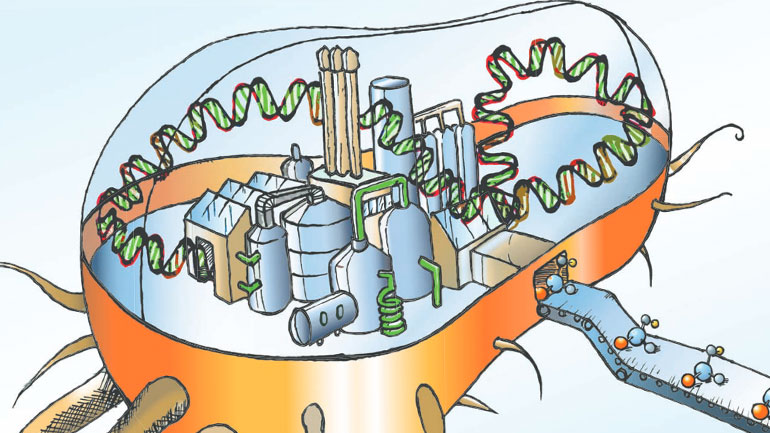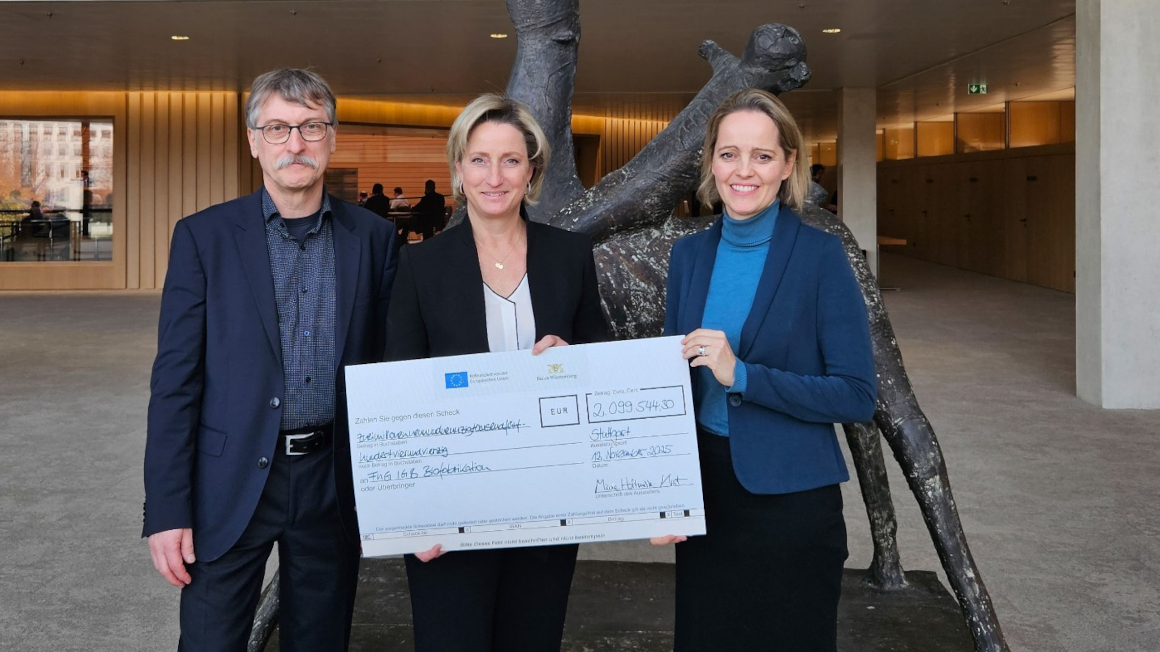Funding round launched: Innovative methods for organic production
As part of the new funding guideline ‘Future technologies for the industrial bioeconomy’, the Federal Ministry of Education and Research is funding innovative projects that address bio-based products and processes for a climate-neutral and recyclable industry.

Climate change and dwindling resources are already posing major challenges for industry today. The industrial bioeconomy offers solutions for replacing fossil fuels with renewable raw materials, closing cycles and thus contributing to a resource-efficient and climate-neutral industry. With the new funding guideline ‘Future Technologies for the Industrial Bioeconomy’, the Federal Ministry of Education and Research (BMBF) therefore aims to promote the development of innovative bioprocesses and biotechnological products, drive forward the transformation of industry towards greater sustainability and strengthen the competitiveness of the German economy.
Funding for industrially relevant bioproducts
As part of this guideline, the BMBF has simultaneously launched a first round of funding on the subject of ‘Innovative bioproduction for a climate-neutral industry’. The funding specifically addresses the areas of ‘Sustainable bioprocesses for industry’ and ‘Novel bioeconomic products’.
Funding is provided for pre-competitive research and development (R&D) projects that decisively advance innovative biotechnological processes on their way to industrial application. The projects should therefore focus on ‘industrially relevant products with a high impact for a resource-efficient and climate-neutral industry’. With this funding, the BMBF aims to boost Germany's innovative strength and its role as a technology developer in the bioeconomy.
Focus on innovations for the chemical industry
However, it is crucial for funding that the biotechnological processes are both sustainable and scalable. They must be geared towards the needs of industry and have ‘realistic prospects for large-scale application’. The choice of (organic) catalysts and production organisms used is arbitrary. Both cell-free or enzyme-based approaches and concepts that utilise bacteria, fungi, algae or plants are supported. The utilisation of waste streams and CO2 as a source of raw materials is of particular interest. The call for funding is open to all sectors, with the chemical industry playing a key role.
- Possible topics for R&D projects could be, for example
- the utilisation of renewable carbon sources (e.g. biogenic residual and waste materials, secondary raw materials, CO2 for the production of platform chemicals in the chemical industry such as alcohols, ketones, acids)
- the resource-efficient production of fine chemicals (e.g. building blocks for pharmaceuticals, agrochemicals or additives for the plastics industry)
- the development of sustainable lubricants, adhesives or coatings
- the development of bio-based ingredients (for example for use as a food additive or as an active ingredient in detergents and cleaning agents)
- the sustainable, industrial production of fibres for recyclable textiles
Further information on the funding guideline and the call for funding
To the announcement of the funding guideline ‘Future technologies for the industrial bioeconomy’ on the BMBF website (only available in German).
Go to the call for funding on the BMBF website (only available in German).
Collaborative projects under the leadership of industry
Funding is provided for collaborative projects with partners from industry and science, whereby the projects are ‘ideally carried out under industrial leadership’. Companies from the commercial sector, including in particular small and medium-sized enterprises (SMEs), universities and non-university research institutions, scientific institutes, federal and state institutions with research tasks as well as German public and private corporations are eligible to apply.
The funding period typically lasts three years. The project objectives must therefore be achieved within this funding period. Project outlines must be submitted by 3 March 2025 at the latest via the electronic application system ‘easy-Online’.
The application procedure is organised in two stages. The BMBF has commissioned Project Management Jülich (PtJ) to manage the funding programme. Contact persons are Thomas Nachreiner and Ines Sender.


